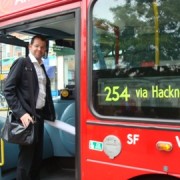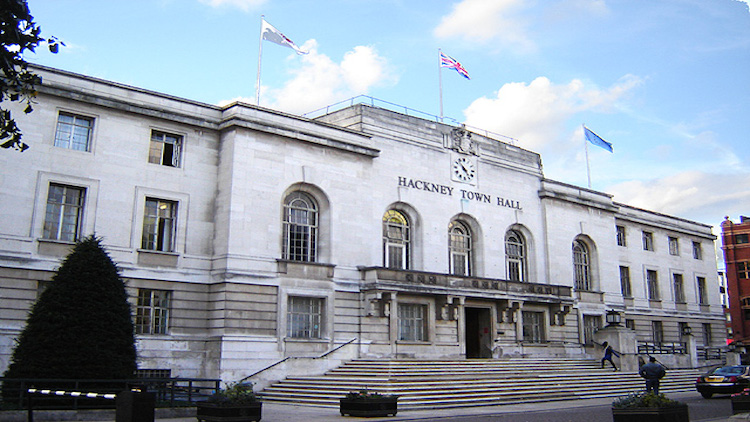
Hackney Town Hall Pic: Wikimedia Commons
A new definition of anti-Semitism that some critics say opposes free speech has been adopted by Hackney Council following a rise in anti-Semitic crime in the borough, which has the second largest Jewish population in London.
Councillors backed Conservative Harvey Odze’s motion to adopt the new legal definition of anti-Semitism. Drafted by the International Holocaust Remembrance Alliance (IHRA), the definition intends to: “combat this pernicious form of racism”.
The IHRAs working definition is:
“Anti-Semitism is a certain perception of Jews, which may be expressed as hatred toward Jews.
“Rhetorical and physical manifestations of anti-Semitism are directed toward Jewish or non-Jewish individuals and/or their property, toward Jewish community institutions and religious facilities.”
Speaking before the vote, the councillor said: “This definition is supported by over 30 governments, including the UK, the Scottish and Welsh parliaments. Over 120 councils have adopted it, including 18 London boroughs.
“In fact, the only inner London boroughs that have not adopted it yet are Westminster, Kensington and Chelsea, and as yet Hackney.
He added: ”Anti-Semitism continues to rear its ugly head and in order to combat it we need a definition of what anti-Semitism is.”
Anti-Semitic attacks in Hackney rose by almost 20% between 2016 and 2017, while the number of race-hate related convictions fell, from one in five, to one in ten.
In late 2017, a man shouting “Hitler was a good a man” attacked two young Jewish girls outside their home in Finsbury Park; throwing a glass bottle at their heads while praising the Holocaust.
Shortly before this incident, a 61-year-old man brandishing a meat cleaver, chased two Jewish children, aged 8 and 14, down their street in Stamford Hill, shouting: “You Jews run away from here before I kill you!”
Supporters believe the adoption of this definition will be a significant step in improving these statistics, making anti-Semitism easier to spot, stop and sanction.
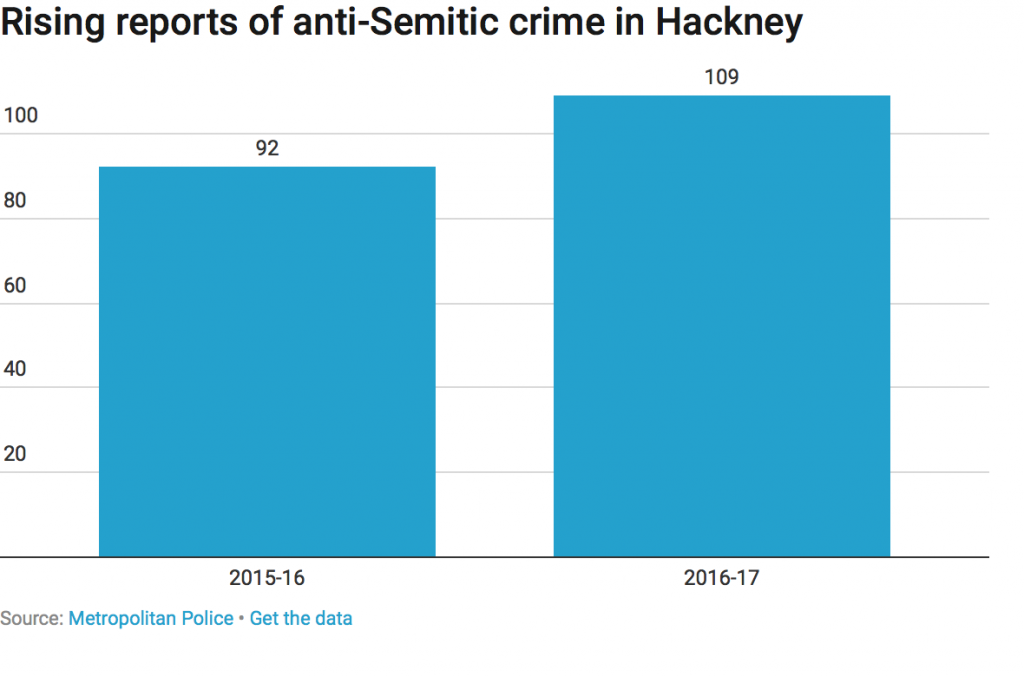
Rising anti-Semitic crime in Hackney (2015-17) Source: Met Police
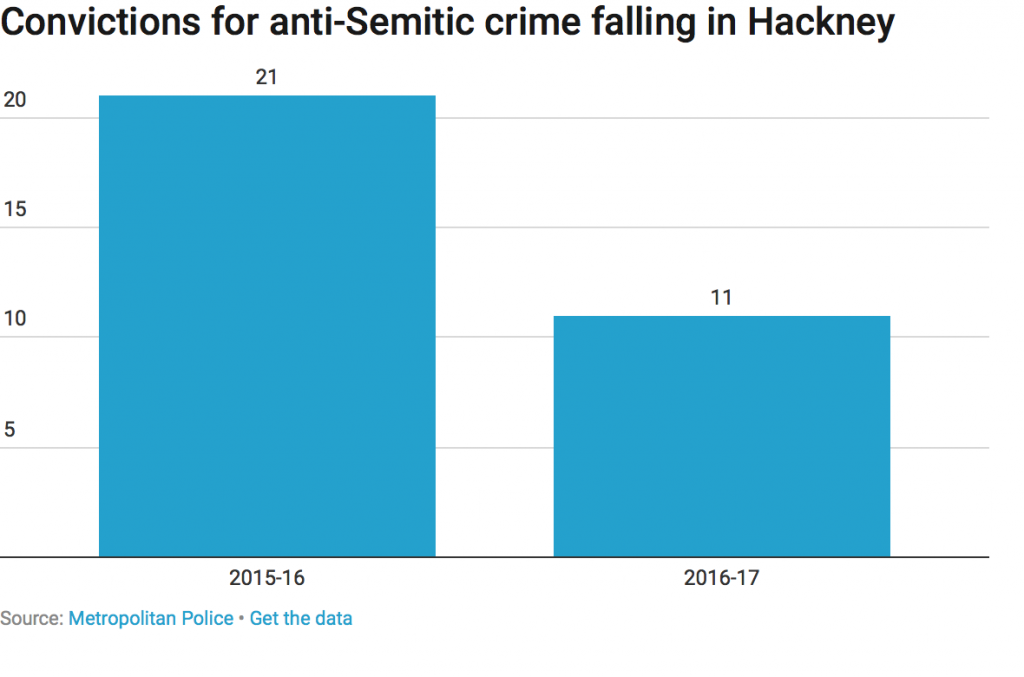
Falling sanctions for anti-Semitic crime in Hackney (2015-17) Source: Met Police
However, despite its intentions, the definition itself has attracted a number of vocal opponents. Protests and heckling have taken place during talks in other boroughs, with critics saying of the IHRA saying it will “restrict freedom of speech about Israel.”
Speaking immediately after Haringey Council’s adoption of the IHRA’s definition in 2017, Bibi Khan, trustee of the Wightman Road Mosque, said: “We as Muslims are committed to fighting all forms of hatred and bigotry, but we deeply regret the definition, which we believe will or could shut down legitimate criticism of Israel.”
Speaking before the vote, Odze said that all Hackney councillors had received an email with reasons to reject the definition; most prominently “that it opposes free speech”.
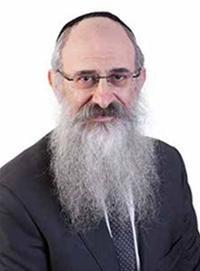
Councillor Harvey Odze, Pic: Hackney Council
However, the councillor attempted to assure attendees this not would be true, saying: “The IHRA definition specifically says criticism of Israel similar to that levelled against any other country cannot be regarded as anti-Semitic.”
Odze claimed that the only anti-Israeli arguments “caught” by the new definition, would be those which relied on objectively anti-Semitic language, such as “Nazi analogies, blood libel” and conspiracy theories about Jewish power.
According to Odze: “Most campaigners for the Palestinians are able to passionately criticise Israel without using any of the vile imagery caught by the definition”.
Anti-Semitism is an important issue for Hackney, which has the second largest Jewish population of all London boroughs, behind Barnet.
Fellow Jewish councillor, Abraham Jacobson, seconded Odze’s initial motion. Jacobson told the audience how growing up in Gateshead, he would carry tear gas and a penknife to defend against anti-Semitic attacks.
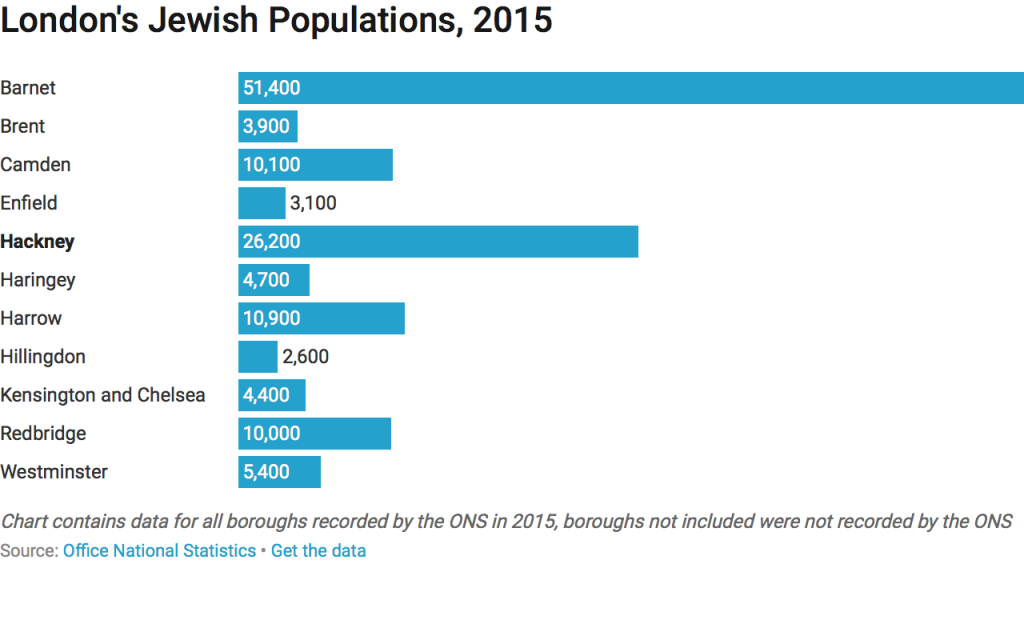
London’s Jewish populations by borough, recorded in 2015 Source: ONS




